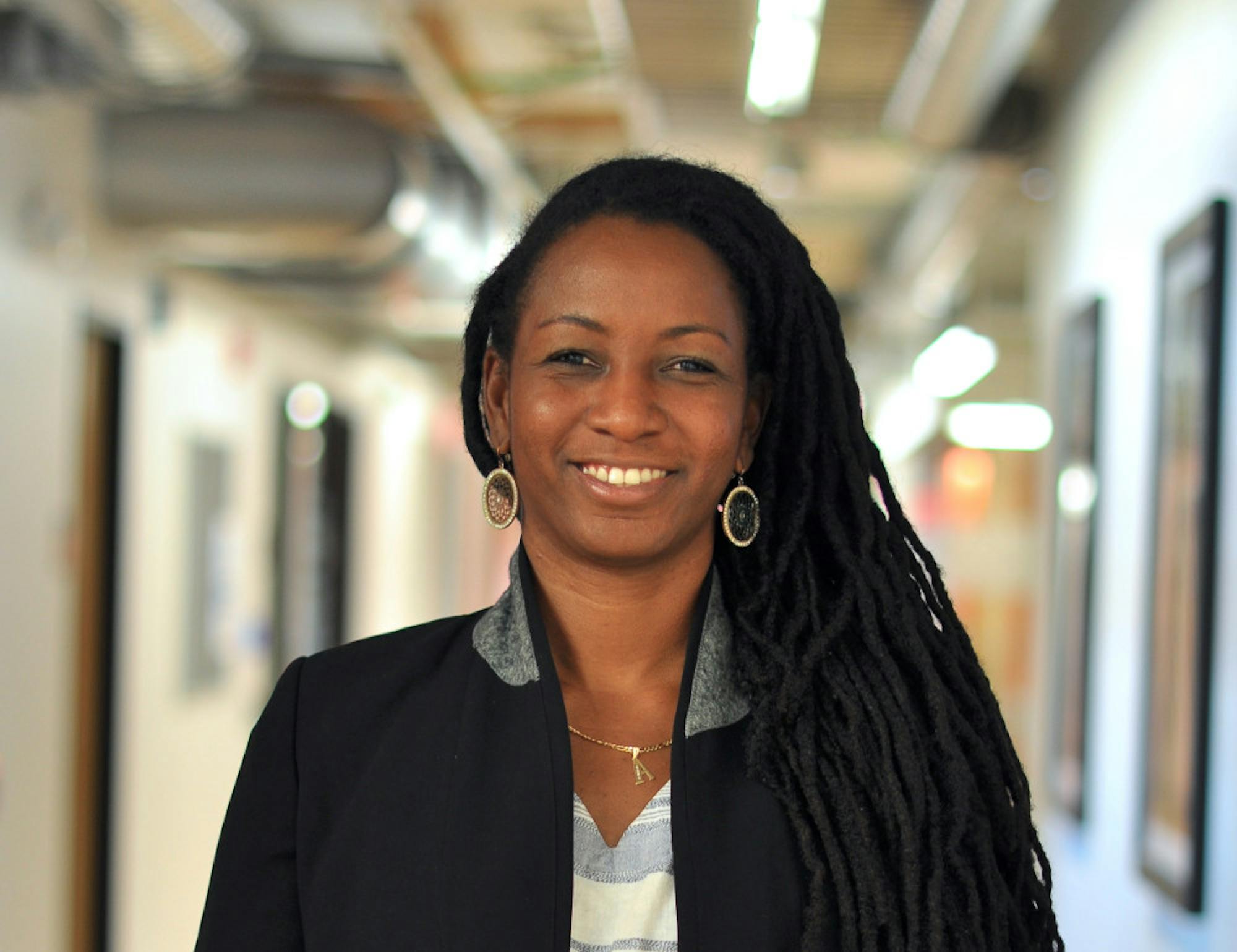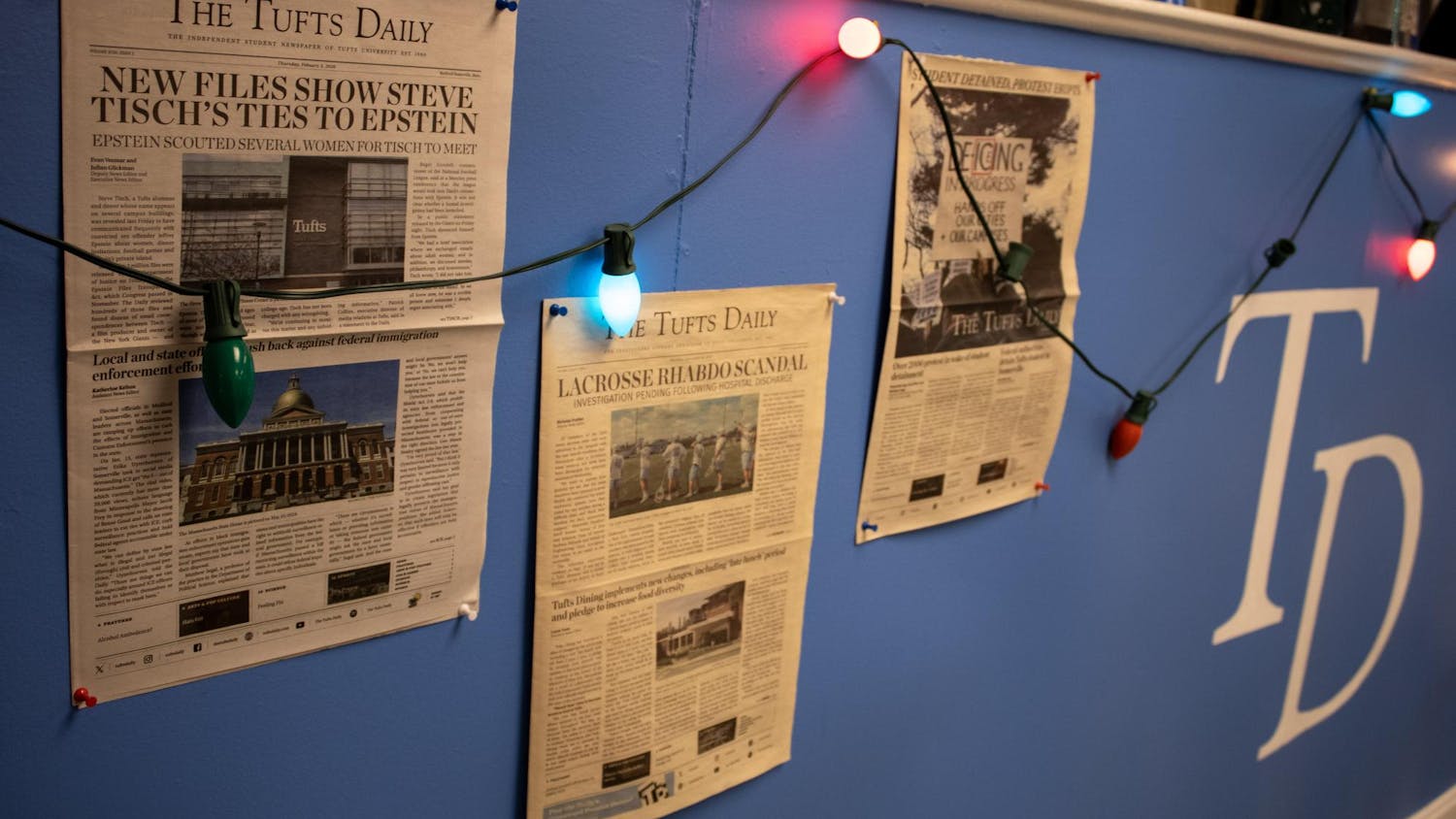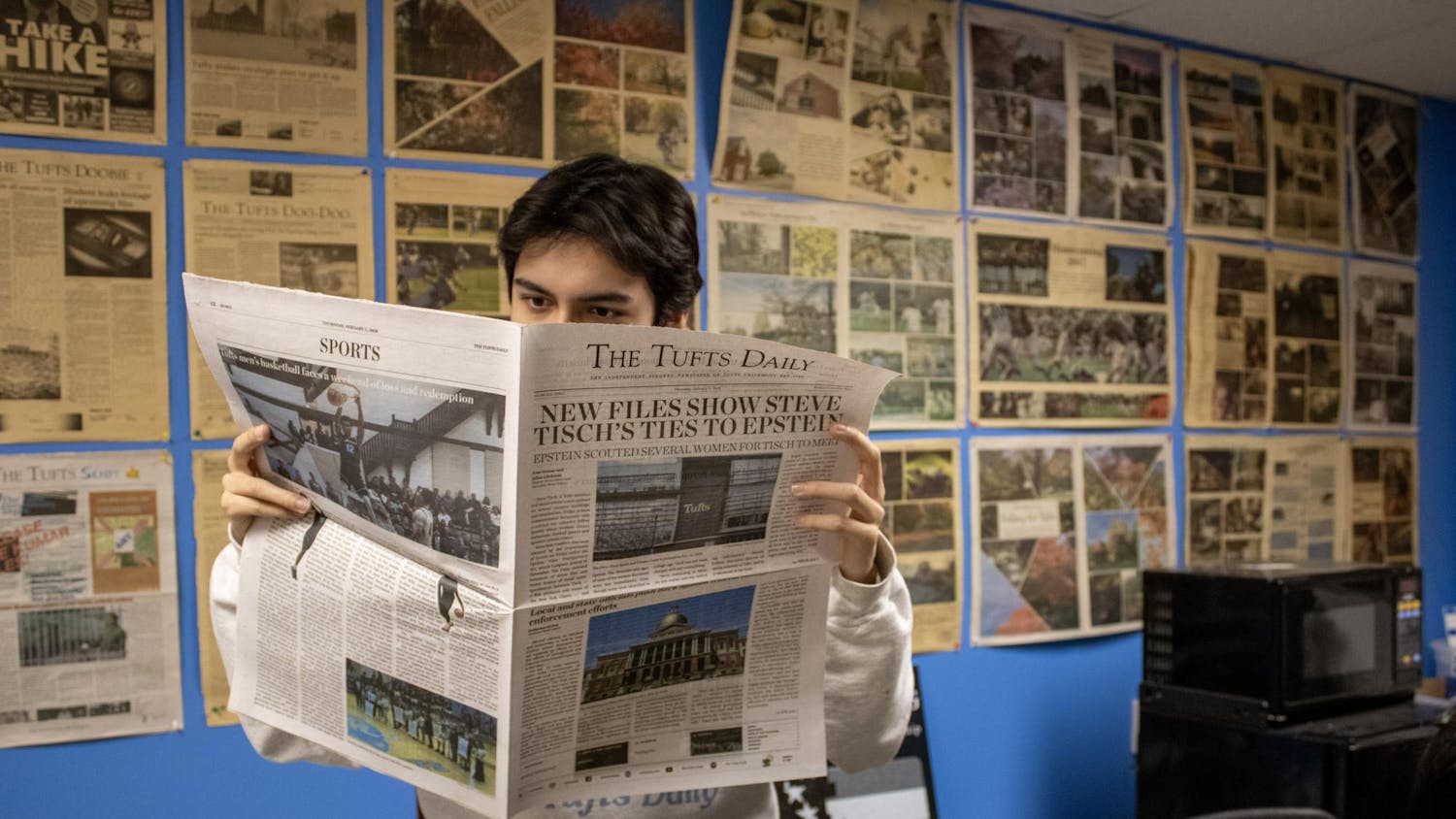The idiosyncratic failings of the U.S. health care system have always been present in the life of Alecia McGregor, assistant professor of community health. McGregor was born in a working-class North Miami, Fla. neighborhood to Jamaican immigrants, and government support was critically important to her family’s well-being.
“I come from a big family of seven children,” McGregor said. “My folks are working-class so all of the different programs like [the Supplemental Nutrition Assistance Program], food stamps, Medicaid — all the different programs that are so vital to our safety net — myself and my siblings all benefited from those.”
It was an undergraduate course, however, that McGregor took as a first-year student at Harvard University, that solidified her interest in health equity. The course, titled, "Explaining HIV and AIDS," taught McGregor the impact of social determinants on health and the importance of destigmatizing health issues.
According to McGregor, the risk groups for HIV were colloquially referred to as the “Four H's” — Haitians, heroin users, hemophiliacs and homosexuals.
"It's just horribly stigmatizing … there are so many reasons why HIV became this enormously stigmatized and racialized and … neglected disease," McGregor said.
This experience also awakened an activist side of McGregor.
“I became involved in things like the Student Global AIDS Campaign. I was participating in protests and actions, and we formed our own political action committee as part of a Black women's organization on campus,” McGregor said. “I ran the action committee and it was at that time that I really decided to commit my life to this work.”
After college, McGregor moved to Washington, D.C. She first worked at the German Marshall Fund of the United States, a non-partisan thinktank created to promote transatlantic cooperation and to repay the United States for the post-World War II Marshall Plan that revitalized Europe economically
“We worked on something called aid effectiveness — how to improve the effectiveness of foreign aid from European countries and the U.S. to poor and middle-income countries,” McGregor said. “I also worked in HIV/AIDS policy and evaluation for a community-based organization called Metro TeenAIDS in southeast Washington, D.C.”
According to McGregor, the capital city was not actually the bastion of goodwill that organizations such as the German Marshall Fund and Metro TeenAIDS made it seem.
“It was very sad to learn just the amount of utter neglect of Black populations that was occurring just blocks away from the White House — from the Capitol, from the halls of power in the wealthiest nation in the world,” McGregor said. “For me as a 20-something-year-old, when I got there, it was just mind-blowing. It was appalling.”
After attending graduate school, McGregor was drawn again to the world of academia.
“There's a certain kind of idealism that [undergraduates] still have, and so we can get into many more questions about how to shape the world that we want to see, versus working with the world that we already have,” McGregor said.
McGregor then joined the community health faculty at Tufts.
“What brought me to Tufts was the community health department … it had just become a department when I started, [and] the ability to be in a place that has that clear social justice focus, and that really is student-focused,” McGregor said. “It's at the undergrad level, which is distinct from a lot of the other public health departments across the country.”
For the past few decades, health care has been a constant subject of media attention and political debate, and McGregor’s teaching career so far has coincided with a particularly eventful era in health care policy. The Affordable Care Act was passed in 2009 –– McGregor’s first year of graduate school –– and brought about one of the most significant health care reforms in U.S. history. The Trump presidency then brought major challenges to the act.
“[President Trump] passed rules for states to join, or to create Medicaid work requirements, which was a way to diminish the number of people who could access Medicaid,” McGregor said. “We also saw him loosen up the requirements for health insurance policies on the exchanges, so they didn't provide the coverage … it wasn't as comprehensive as it once was required to be, and they could deny people based on pre-existing conditions."
The COVID-19 pandemic has also provided ample discussion material in McGregor’s classroom. Her research and teaching focus is on political determinants of health and health care inequality, which have become ever-present to the publicover the past 11 months.
“Political determinants of health can also be considered a type of social determinant of health … but political determinants are specific to how relationships of power — mostly formal political power — the role of social movements, the role of mass public opinion, political parties and others, come to bear on how our health system is arranged, which is one of my big interests, and also the health of the population, and the health inequalities that we have,“ McGregor said.
McGregor outlines a broad history of health care policy in America that has developed into the fragmented mosaic we have today. The way the United States itself was created is a fundamental aspect of this process.
“This is a federalist republic … so states have a lot of jurisdiction over health policies,” McGregor said. “During COVID-19, the federal administration … left it up to the states to take the lead on responding. As a result, things like testing rates, and the vast differences that we're seeing in vaccination rates all over, and the supply chain issues, all of that has been really hindered in a big way.”
The rise of employer-sponsored health insurance came about during World War II, a feature with disastrous effects for times of widespread job loss such as the current pandemic.
“During World War II, there were wage freezes that were enacted, so one of the ways that employers attracted new talent was to offer benefits and health insurance,” McGregor said. “Eventually, the [Internal Revenue Service] passed a law that essentially gave a tax benefit to employers for offering this. And then over time, that kind of became entrenched in the system, and it became the dominant way that we receive health insurance: through employer-sponsored insurance.”
This fragmented system was further modified by reforms in the second half of the 20th century.
“Medicare and Medicaid come about [in the 1960s], and then we end up having the system of employer-sponsored insurance with Medicare here and Medicaid there,” McGregor said. “And for veterans, they have the [Veterans Affairs], and then eventually, we have the Children's Health Insurance Program that comes about in the ‘90s. It's a very fragmented system that obviously has massive gaps … in our system, there is lots of inefficiency, lots of ways that resources are wasted and then, at the end of the day … the U.S. spends more than any other country in the world on health care, but we are lagging way behind in health outcomes.”
This system, as well as policy actions taken since 2016, has created a perfect storm for a pandemic. According to McGregor, the Trump administration’s choices to withdraw the United States from the World Health Organization and not open special health care enrollment periods have exacerbated the effects of COVID-19. A policy of denialism has allowed the disease to fester needlessly.
“In the earlier days of HIV and AIDS, a former South African president, Thabo Mbeki, was known for denying HIV and AIDS saying that it wasn't real, and that led to an uptick in cases in South Africa,” McGregor said. “Now, in the age of COVID-19, we see the Trump administration certainly downplaying and practicing some denialism, also [President] Bolsonaro in Brazil practicing denialism … and Brazil now has the second-highest number of [COVID-19] deaths."
According to McGregor, health care will forever be a political issue in America, but it is possible to provide it some much-needed stability.
“Health policy is considered part of what you would call distributive politics, whereby we do need to raise taxes or government revenues in some way in order to provide health care that's at least partially paid for by the government,” McGregor said. “In our political landscape, anything that's about taxes, and affecting people's pocketbooks, is ultimately a very highly politicized issue.”
McGregor attributes some of Americans’ reluctance to embrace federal health care reforms to stigma surrounding receiving government assistance.
“In the U.S., we have this thing called American exceptionalism where we think we should pull ourselves up by our bootstraps,” McGregor said. “There's this looking down on government assistance, which is so crucial and critical … the role of the government is of fundamental importance to overall public health; there's just no way around it, especially in a crisis like this, when so many people are out of work.”
While many Americans reject the idea of entitlements outright, those who need them most, despite accepting them, receive only a fraction of the care they need.
“Our health care system, and the vast inequities that are really embedded in it, are what set us up this way … the notions of who the undeserving poor are versus who the deserving poor are have played a big role in who has access to care," McGregor said.“People of color — Black, Latinx, indigenous people — are being hugely impacted by the virus, especially when it comes to hospitalizations and deaths … this long-standing, what we would call structural racism, has predisposed communities of color to worse outcomes and abysmal lack of visible access to health care."
In order to provide more consistent health care, this mindset needs to change to be more accepting of government involvement in the health care system, according to McGregor.
“In countries where the provision of health care and other social services is just taken as a given, it's not questioned as to whether or not it's the role of the government,” McGregor said. “Many countries have health care as a human right written into their constitution. In the United States, we don't have that.”
Increased government involvement in regulating health care may seem impossible in today’s political climate, but large-scale government benefits have made the transition before.
“When [Social Security] was first passed in 1935, it wasn't necessarily a given the way that it is now, and I think over time, these massive social programs that are considered entitlements, it takes time for them to embed themselves into the culture and into a political institution,” McGregor said.
Many hope that a similar acceptance could occur with health care,, especially considering the national media attention received by Senator Bernie Sanders’Medicare for All plan during his 2020 U.S. presidential campaign.
COVID-19 has exacerbated and made increasingly clear some deep faults in our nation’s health care system. It has affected the daily life of every American, professors and students included.
“We're teaching with a dark cloud over us, and we're trying to help students make sense of this cloud so we can get out from under it,” McGregor said about her work during the pandemic.
But the past 11 months have provided some critical lessons as well, ones that apply especially to students and young people.
“What I would say is to just pay close attention to what we're seeing unfold; things are happening rapidly … as students are thinking critically about where we're at as a country, and where we need to go moving forward, I encourage them to draw on all they've learned in their classes, and outside of class, especially about history, about what we've learned from the past,” McGregor said. “And really just be bold, and it's obvious that people in power don't always know what to do. So they can have a tremendous advisory role if they make their voices heard and reach out.”






